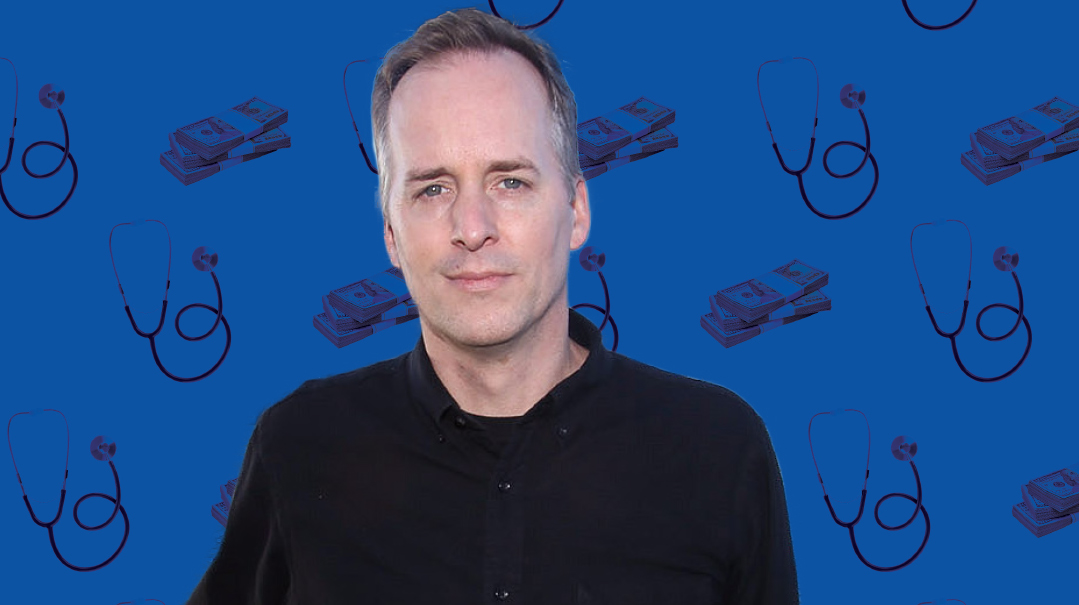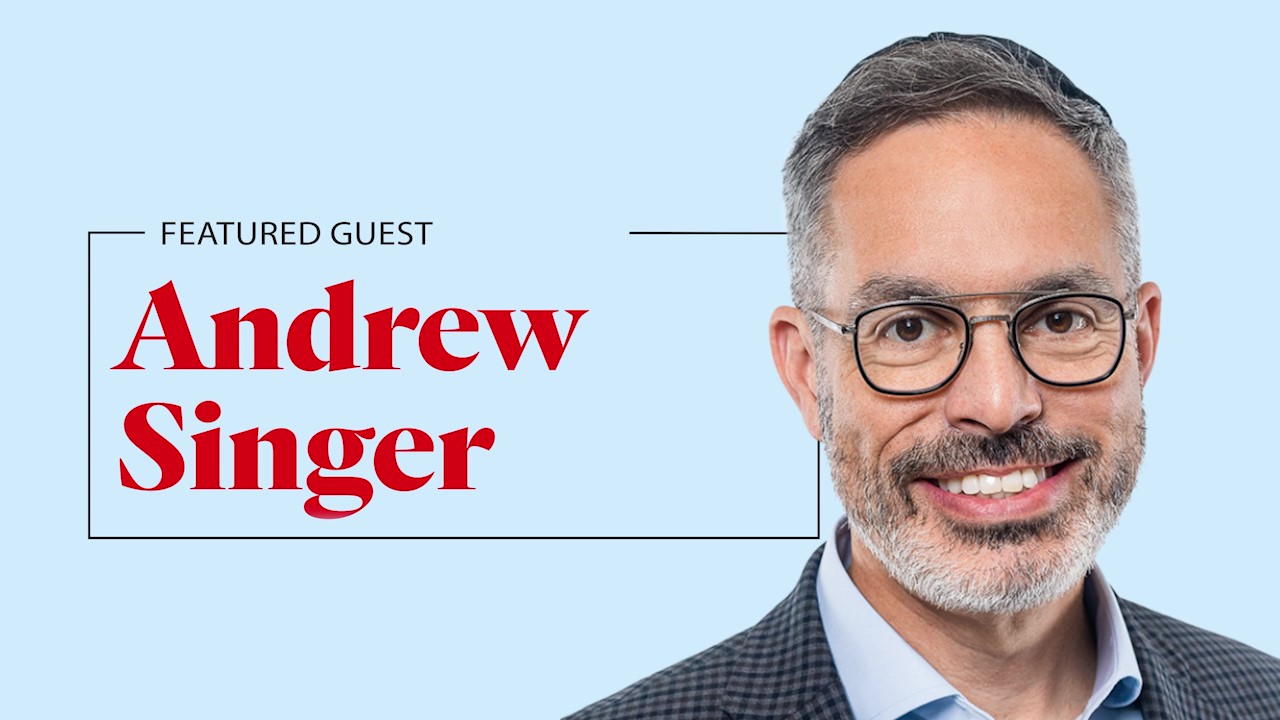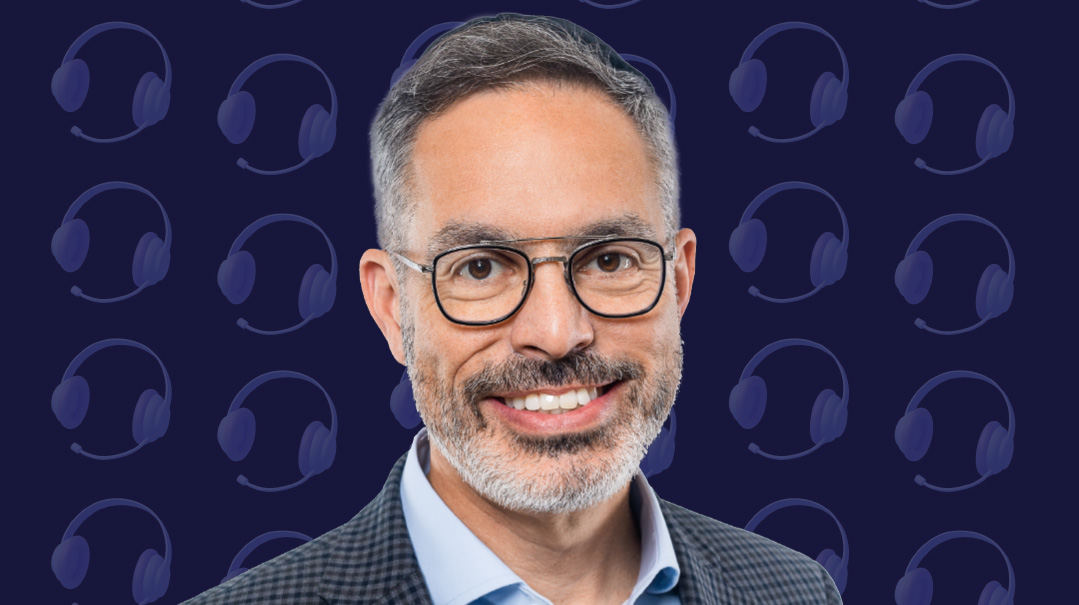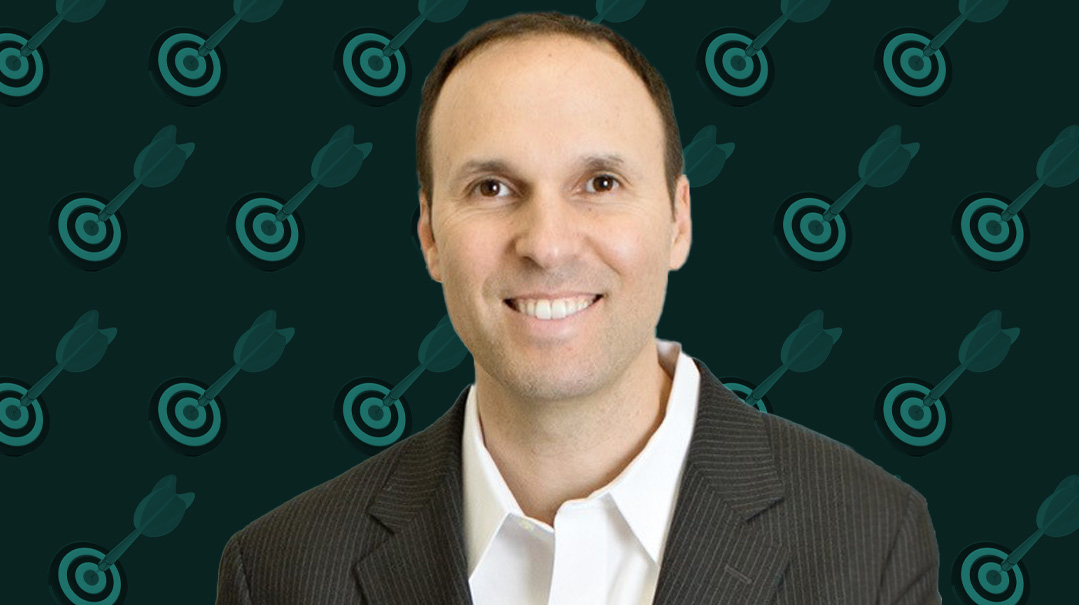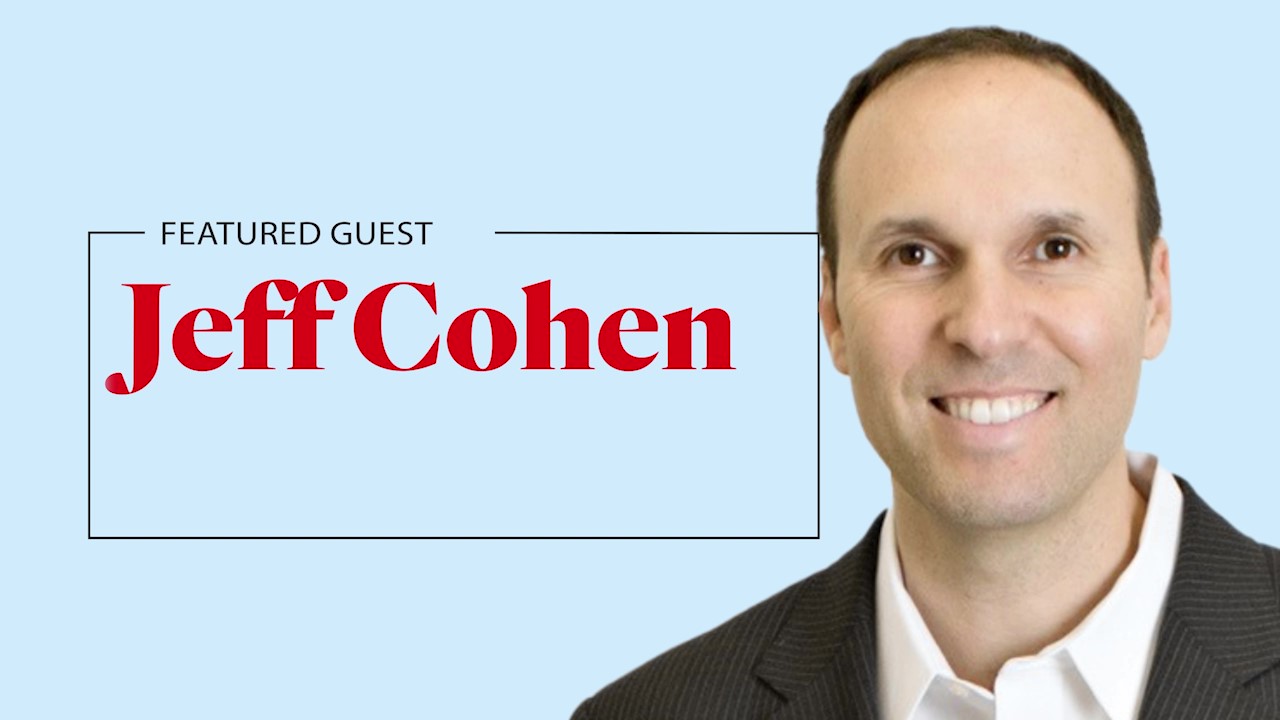Make it Grow
| March 21, 2023Got a little money? Invest it wisely and turn it into a lot. You can’t afford not to
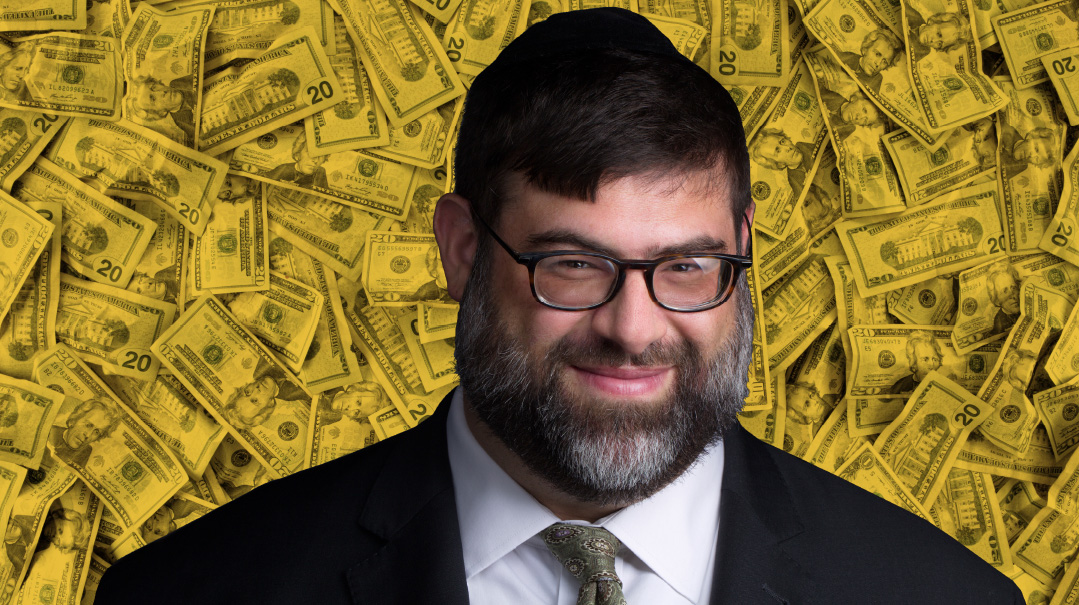
Eli Fried is an investment advisor to pensions, endowment funds, and family offices, and the founder of Gelt-Guide.com, which provides financial information, tools, and resources for the frum community. He’s passionate about educating the community about the importance of investing and dispelling some of the confusion around the process. Here he shares with Kosher Money and Mishpacha readers the Torah perspective on investments, and tips on getting started
Eli Fried has an MBA, and he’s read hundreds of books on finance, investments, economics, and business. But most of what he knows about investments he learned on the job — by investing. He started reading about the stock market as a teen, and his accrued knowledge served him well when he began working in a real estate investment firm. He learned how to find a good deal, evaluate the risk level, and determine whether or not to go for it. Today, he’s involved in the broader investment industry both as an active investor and as an advisor to others. In his own words, his job and mission are “to help people make better financial decisions.”
How does compounding work?
Compounding has famously been called a world wonder, but many people struggle to comprehend the importance of the concept. It comes down to some math.
If given a choice, which opportunity would you choose?
- Invest your money and after ten years, you get back double
- Invest your money and get only a 7.5 percent annual return
The first choice seems intuitively better, but the second is actually more profitible. People hear about steady compounding and think, “Nope, that’s not going to do it. I need more.” So they put their money in an exotic option that promises a 100 percent or 10,000 percent return — and enter a very high risk. Instead, people need to think of investing as Warren Buffet does. Compound interest is a snowball. You start with something tiny and keep rolling it around down a snowy hill. It compounds and gets huge very fast.
Interest is like that. The first roll only adds a centimeter or two, but as the initial snowball grows, the amount of interest grows every year too. The twentieth “roll” can add a full foot of cash.
To get a big snowball you need good snow and a long hill. You want your money to have as much time to roll as possible, because the first few rolls at the beginning are not nearly as valuable as later on, when the snowball gains momentum and reaches the bottom of the hill.
People are amazed when they look at the numbers. A small $1,000 investment in your twenties becomes $30,000 or even $50,000 when you’re ready to retire; 50X with minimal effort or risk.
How can you avoid falling prey to scams and bad investments?
Fraud happens when you trust someone. The likelihood you’ll trust a respected community member — even if they actually offer sketchy advice — is high. Misapplied trust can lead to risks you’re not prepared for.
There’s actually a phenomenon called affinity fraud, which describes when people take advantage of community ties or demographics to scam someone out of their money. Fortunately, it’s not so common in our community, though it does occur. What’s more likely is that people will take excessive risks because they trust someone else’s opinion more than they should.
Most of this can be avoided when you follow common sense, as outlined in various Torah tips.
- Kabdeihu v’chashdeihu — Respect people, but don’t give blind trust. Getting a second opinion should be the basic protocol.
- Get everything in writing; the Gemara talks about this concept extensively. And have someone you trust review it.
- Diversify. When Rav Moshe Feinstein would hear stories of frum people who got completely wiped out financially, he would question why they hadn’t diversified. It’s an investment principle straight out of the Torah. If you don’t have enough to diversify, you don’t belong in the deal. Start off investing in mutual funds, which diversify for you, until you have enough to enter a few deals — never only one.
Should you prioritize buying a house before starting a retirement fund?
For a frum family, a house is a very important financial need. Our families grow quickly and because we need specific neighborhoods, the prices rise drastically as well. You need to buy a bigger place earlier, when you can still afford it. Otherwise, you might end up outgrowing your small place, not be able to buy a bigger one because the price of the size you need is just so high.
Once you have some inkling of where you want to settle and some idea of what your income will be, buy. It’s actually a bigger priority than retirement, though you should grab a company match if offered. Otherwise, retirement is a very long time away, relative to the roof over your kids’ heads.
Own a home? You’re already a real estate investor.
Not only is a house a piece of real estate, but almost every single American can take advantage of the best mortgage financing on the planet. If you can lock in a mortgage for 30 years, it’s an amazing opportunity to invest in real estate.
Once you’ve bought a home, there may be an opportunity to expand your real estate portfolio further because you already know what it means to research a house. You already know what it means to maintain a house. And it’s worthwhile because your mortgage rates are locked in, but rental prices will keep going up with inflation.
How does being part of the frum lifestyle affect our finances?
Well, there are many angles here, so I’ll mention one that gets overlooked. It’s easy to write off frum life as “so much more expensive,” but when you talk about the cost of the life, you also have to talk about the “income” side. I’m not even talking about the ruchniyus aspect of our lives at all. On a practical level, being frum means being part of a community that will help you find a job, give you a loan, and help look after your family. These are things we tend to take for granted.
If Chaveirim shows up in six minutes, we wonder why it wasn’t three — but forget that AAA charges $300 a year for the same service and isn’t even nearly as good. How much is Hatzalah worth? How valuable is the communal net that kicks in in an unbelievable fashion when needed? I have a hard time believing there was ever any community as supported as ours. There’s a cost to being frum, but there’s a huge profit as well.
What’s the Torah’s view on investments? Is the idea of investing with the expectation you’ll turn a profit sourced in Torah?
Yes. Many times. One example is how the concept of buying low and selling high was first mentioned in the Chumash when Yosef was dealing with the drought and upcoming famine, and Pharaoh was bowled over. Why, though? If you think about it, it wasn’t such a novel idea. It makes sense that when there’s a lot, you put away some for later.
The answer is that human nature doesn’t instinctively work like that. We think that when there’s abundance, it’s going to be forever. And when there’s a difficult time, you think it’s going to go on forever. This phenomenon is documented by behavioral economists; it’s called recency bias, and means that everyone thinks that whatever’s going on now is going to keep going on.
So yes, Pharaoh needed Yosef to tell him to save. It took a chacham to strategically use the good times to prepare for the bad.
You often mention the survivorship bias. What is that, and how does it relate to investing?
Survivorship bias is when we make descisions focusing only on the success stories while ignoring the failures lying in the graveyard. When a war ends, the returning soldiers parade down the streets. Everyone cheers them on and thinks, They’re so happy, healthy and strong. Look how well we did! What they neglect to realize is the hard truth: These soldiers are the survivors, and for every one who comes home safe, there are many others who lie dead on the battlefield. War is horrible, but if you only look at the survivors then it can look glamorous.
You must look at the full historical picture to get a realistic perspective. In investment terms, you’re sending your money out to war, but people only look at the survivors. They see others pounding friends on the back for their good investments, and then everyone else wants to do the same. But for every investor who put money in Apple back in 2000, there are ten others who put money in BlackBerry or another hot stock that went bust.
It’s the same with crypto. Everyone likes to talk about the guy who put in when it was as low as 100 or 1,000 and is now a gazillionaire. But many, many people bought at 60,000, and then it fell to 340 and they panicked, sold out, and lost 50 percent of their money in a month.
When investing, you can’t only look at the survivors. You have to look at the entirety of the package or else you’re really not getting a realistic picture. You can’t just look at the potential reward. You’ve got to also include the potential risk.
Many young couples know the value of investing their money, but if you look at their bank accounts, there really isn’t much there. If someone doesn’t have large sums right now, what advice would you give them?
It’s a great question that’s quite relevant, because frankly, many young couples are quite discouraged. They can barely make ends meet — how can they even consider investing? They barely have 50 dollars to put in, so they feel like it’s not worth bothering.
I say it’s equivalent to a farmer saying, “Why should I plant seeds? Seeds are tiny and I want a big tree.”
It takes time for something good to develop. Compounding really is magic — and young people have more time for that magic to work. When someone in their 50s comes to me saying they’re worried about retirement, they only have a few years left for their money to grow. It’s tough. Young people have the benefit of time on their side, so even $50 will grow significantly.
I tell young people, “Look, you can either wait to start thinking about a wedding for your child when you’re 40 and have to come up with 50 grand, or you can start putting away $100 a month now for your child’s wedding fund and at age 40 have the 50 grand accumulated. It’s a lot easier to push yourself for $100 a month now than it will ever be to come up with $50,000 at once.”
If someone wants to invest but doesn’t know where to start, what do you tell them?
You need to be an educated consumer. It’s not that hard. Read the Investing for Dummies and Personal Finance for Dummies books and you’ll already know more than 85 percent of the population. Investing isn’t brain surgery, there’s no reason not to get started.
It takes ten minutes to open an IRA and put away the allowed $6,500 a year. If you do that consistently and begin at a young age, you’ll probably have a reasonable retirement fund.
Investing has become unbelievably simplified. For many investment goals, you can literally use a fantastic single target date mutual fund and forget about it for decades. You’re getting some of the best investment management skills out there for pennies.
What’s harder is actually saving the money to be able to put it away consistently. When you’ve got mountains of bills, $5,000, $500 or even $50 may feel like a lot. I get that — I feel your pain. At the same time, if your finances are so tight that you can’t find even the smallest amount of money to start a savings plan, you really need a reevaluation over here.
Maybe you have to increase your income; maybe you need to tighten your belts; maybe you need to move somewhere else. But something needs to change. I heard Tony Robbins once recommending ten minutes a day of meditation, and he said that if you can’t find ten minutes, you have an even bigger problem. To a certain degree, I feel the same way about saving money.
If someone does want to invest a little more actively than a mutual fund, what do you recommend?
Real estate is much easier than stocks. If you have a job, spend every Sunday getting to know a market. Look at every property on the market in a certain neighborhood. Sooner or later, there’s a fair chance you’ll find an undervalued property, and you can potentially make a substantial profit, even build a portfolio over time.
How does survivorship bias relate to real estate investment? What should people keep in mind when they’re getting started?
The past year has been difficult for all investments, but especially real estate, which is very much driven by interest rates. Many deals have gone bust, so it’s easier now to recognize that there’s always risk involved.
Imagine you have a school bragging that all its students are star students, so you ask to see the test scores. But no — they don’t do tests or report cards. Obviously, it’s not that all their students are stars. They’re just not collecting and presenting the data.
With real estate, it’s easy to only look at the stars — the people bragging in the coffee room or dropping big donations when they’re doing well. There are many real success stories, but don’t ignore all the other deals that fell apart, or people who lost big by overextending themselves.
The challenge is that these deals are hard for the average investor to research, and the people pitching the deals, who usually have more information, also have more bias. You can’t ignore the bias.
Most of the people we see hitting grand slams are not actually hitting them consistently. When the market turns, they lose — but we don’t see that part. Don’t confuse luck for skill.
What should people be keeping in mind when it comes to getting an education before venturing into real estate?
I believe I mentioned on the podcast that today it’s easier than ever to get educated. There are so many free resources. I think you have to distinguish between someone selling you the chance to get rich quickly or a method to get rich slowly. Use your common sense. If someone has a way of turning thousands into millions fast, why is he wasting his time teaching a course? Stay skeptical of anything that’s “get rich quick.” Realistically, it usually takes at least five to ten years to hit your stride in any endeavor and start making real money. And some never do.
How should people prioritize their saving and spending buckets?
In my view, it’s a bit different for the frum world because we tend to have much larger families with unique housing needs, tuition obligations and huge simchah expenses.
- Pay your bills — a roof over your head, food, clothing, and tuition. As mentioned, you should build up some emergency savings, too.
- If you have any credit card debt burning a hole in your pocket, get rid of it; it’s like financial cancer. It’s almost impossible to grow wealth if the clock runs the other way. Getting rid of that debt is an emergency.
- The next most valuable thing you could do with your money is to take advantage of any 401K match at work because it’s basically a guaranteed 50 percent or 100 percent return at no risk.
- Buy a house. If you don’t buy early, your family will grow and the prices will have risen dramatically, so you might get priced out of buying (or even renting) the space you need in your neighborhood.
Then it’s time to get serious about saving for simchahs, retirement, and generally building wealth. Ultimately, there’s always a tension between spending now and saving for later. The exact details need to be calculated on a family-by-family basis. And the plan needs to be flexible, too.
If someone’s considering stocks, what should they keep in mind?
There are a few ways to do it.
1. You could be a gambler. Basically, you have no clue what you’re doing, and you’re treating stocks like a casino, just instead of throwing a die or pulling a lever or playing cards, you’re just throwing money into something. Maybe it’ll go up. Maybe it’ll go down.
Hashkafically, we know that gambling is something frowned upon in the Mishnah. If you’re using the stock market to gamble, that’s not hishtadlus.
2. You could be a speculator, a trader. You don’t care what an investment is really worth. You look at trends — not long-term impact. That’s fine, but don’t fool yourself. You can lose just as easily as you make.
3. Then there’s an investor. You’re a long-term partner in the business. If you have a business and there’s a slowdown in the summer, you don’t cash out. You don’t panic. Because you believe in this business, you can invest in the stock market long term. Many have succeeded in building wealth this way over time. But it takes a lot of patience and discipline.
But don’t fool yourself into thinking that because you’re playing around on your Robinhood, you’re an investor. Most likely, you’re a trader — or maybe even a gambler. It’s a hobby, and not necessarily a healthy one at that.
What rate of return should people be trying to hit on a yearly basis?
That’s like asking how fast to drive. It depends who’s driving, which street, where you’re going, and the weather conditions. You should aim for the highest return possible for the level of the risk, skills, and effort you can bring to the table.
In the short run, investment returns vary very much with the current economic weather conditions, but in the long run, it tends to even out. A novice investor with a diversified long-term portfolio historically was compounding at about seven to ten percent. To get more, you generally need to be more involved and develop investment skills and relationships.
How much money should you keep available as accessible cash?
The typical rule of thumb given is three to six months of household expenses, which is a pretty hefty number in the frum world. For many, saving that much means it’ll take a long time until they can start investing.
As a frum community, it’s a huge benefit that we have a safety net. You know that if there’s ever a real crisis, people will step up. You definitely don’t want to call an emergency every time you need $1,000, but I think in the frum world you may be able to save less, then start investing and come back to build your cash afterward.
Right on the Money
Do or die
You have to invest because there’s a good chance you’re going to get much greater returns. Look at it this way: If you don’t invest, inflation will kill you instead.
There’s always an excuse
If you don’t start saving when you’re young, you’re probably never going to save. There’s always a new expense — children, tuition, a mortgage. You have this, then you have that. You have to get in the habit of saving right away so you have time for that investment to grow. Making saving a consistent habit will protect your family’s financial future for years to come.
The magic of compounding
Warren Buffet is one of the richest people in the world; if you look at the numbers, though, most of his wealth was developed in his later years.
A decade ago, he was worth about 50 billion. Today he’s worth over 100 billion because that’s how compounding works. It took him 60 years to get the first 50 billion, and then only ten years to get another 50.
Motivation to save
Don’t think of it as $50 a week. Think of it as 20×50. Compounding will do its magic, you only need to put in $50 to get there. That same investment today should be worth closer to $500 or $1,000 down the line.
‘Money Talks’ is produced in conjunction with Living Smarter Jewish (LSJ) and Living Lchaim.
LSJ initiatives include free personal finance coaching, education geared toward young couples, referrals to financial planners, curriculum development for high schools and young adults, and video education library.
To request help, please email: info@livingsmarterjewish.org
Living Lchaim is a podcast network dedicated to producing shows that enhance the lives of Orthodox Jews across the world. The Kosher Money podcast, created in partnership with LSJ, hosts lively dialogue around frum financial realities, facilitating awareness and educated decision-making.
(Originally featured in Mishpacha, Issue 954)
Oops! We could not locate your form.

